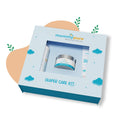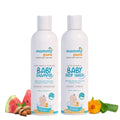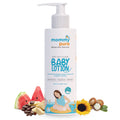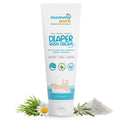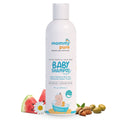How to improve lactation in breastfeeding mothers

Nutrition plays a very important role in one’s life. And when it is regarding the nutrition of your little baby you leave no stone unturned to give the best. Post-delivery breastfeeding is the only channel of nutrition. So, one question likely to run in the mind of breastfeeding mothers would be, is my baby getting enough? Often this concern or anxiety can lead to stress in our caring Mommies and impact your milk supply.
To tackle this anxiety/woe of lactation Mommypure comes with a post guiding you on How to improve lactation in breastfeeding mothers. Before we get started let us tell you that the first most important factor affecting breast milk production is your willingness to breastfeed your baby. After all, it's the mind game. Yes! Your desire stimulates the brain to release the hormone prolactin and oxytocin that have a key role in milk production and its release. Rest all are the habits, tricks, and techniques that will aid in boosting the supply.
Let’s hear them out…
Latching
Poor attachment can affect the milk supply. If the baby is properly latched it will result in adequate drainage and eventually more milk formation. Besides, it is also important to look for anatomical reasons that prevent proper latch such as inverted/flat nipples in mothers and tongue tie of the baby. You may also need to ensure that the baby is able to suck milk efficiently. This can be ascertained by breast emptying and happy baby post feeds.
Health issues
Post-delivery is your recovery period. So, make sure you take all your prescribed medicines. At times you may feel pain and tenderness during feeding sessions which could be due to nipple crack or mastitis. Let your doctor examine your discomfort and treat you accordingly. Then it can be your baby’s illness that ends in poor sucking as well. One point that can be noted here is, sucking reflex impacts the supply. Certain ailments like hypertension, diabetes, thyroid dysfunction & PCOD, contraceptive pills can also affect the milk supply. Do not leave any health issues unattended as it can impact both the physical and psychological aspects and lead to early weaning and encouragement of bottle feeds. The bottom line is, look for the causative factors and get them resolved.

Feed Often
Do not be strict in timings! Whenever the baby demands, meet it. The baby is growing so would the requirements. In due course of time, the frequent feedings will benefit by enhancing the supply. Also, the principle behind this regular feeding is simple- if one demand is met the supply is ready for the next.
Breast Compression
It is important to switch from one breast to another to boost the supply. Gently compress your breast during the feeding session. Breast emptying plays a crucial role, then this could be done either manually or by using the electric pump.
Breast Stimulation
You make more milk by making your baby feed more & for a longer duration. Discourage formula feeds. Remember no formula feed can replace breast milk. Moreover, the formula feed will only keep your baby away from you. Having your baby close to you during feeds or otherwise develops skin contact and this is important to stimulate your hormones and glands that produce milk. Breast stimulation plays a key role in relaying the message to your brain and body to keep up the supply. Thus, it helps increase the supply that’s ready for your little one’s demands. You can opt for Kangaroo care. (Hyperlink Kangaroo Care Blog) It doesn’t end here. The best way of bonding with your baby is through skin contact. Besides, you can also stimulate the breast to express the milk by hand or pump once your baby is done with the feeding or when the breasts are full in between the nursing sessions. The rule is -Keep it empty!
Nutrition
Eating healthy is crucial. Include greens, leafy vegetables, proteins, iron, and calcium in your diet. Consider foods and herbs that have galactagogues action like oats, fenugreek, spirulina, alfalfa, garlic, ginger, dill, beet, beans, lentils, whole grains, legumes, nuts, seeds, peas, barley, seeds that of fennel, anise, coriander, and caraway, papaya, apricots, meats, eggs, and dairy.
Hydration.
Drink plenty since the major component of milk is water. So, keep yourself well-hydrated. Besides water, include milk, fresh fruit juice, coconut water, and soups.

Rest
Stress and fatigue can negatively impact breast milk formation. Energy drain due to excessive physical activities can leave you with a poor milk supply and increase feeding anxieties leading to further milk inadequacy. Rest whenever you feel overtired. You need to take care of yourself too. Whenever your baby is asleep just grab a pillow and snooze away. Make sure your sleep quota is well replenished.
Better avoid
OTC (over-the-counter) medicines interfere in the production of milk. Avoid taking any medicines without consulting your doctor. Caffeine, alcohol, smoking, and tobacco addiction also reduce the milk supply
Night Feeds
The hormone prolactin triggers milk production and its level is high during the night. So, night feedings should be encouraged instead of opting for formula feeds.
Poor Milk Supply, while this is a common fear, in reality only a few mothers are unable to make enough breast milk. Our aim is to ensure that our mommies get to know the above simple tips plus tricks and follow them so that they are free from any kind of worries of low supply and at the same time produce enough breast milk to keep their tiny cup-cake well nourished.
Do not give up. Seek help. And we just did that to help you mommies out.
Keep Up The Supply!


